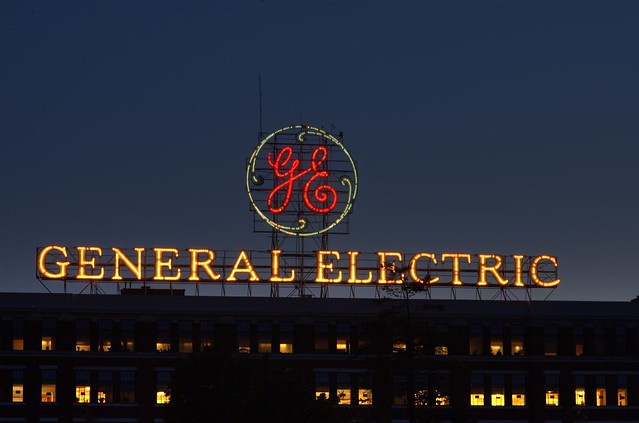FAQ: Corporate Tax Breaks and Tax Reform
By
Mattea Kramer
Posted:
General Electric pays zero federal income taxes and receives billions in tax subsidies, according to Citizens for Tax Justice/ Photo by Chuck Miller
Imagine that tax day rolls around and – instead of paying any taxes at all – Uncle Sam sends you a check for millions or even billions of dollars.
For dozens of profitable corporations, that's what actually happens. They don't need to imagine it. The U.S. tax code is full of tax breaks that allow some corporations to reduce their taxes down to nothing – and then actually get a check back from the government to boot.
If you think that's a system that requires a few changes, you're not alone. Washington is aflutter with talk of corporate tax reform, so we thought we'd answer a couple of your questions on the subject. We'll start with this important question:
Q: I’m hearing about tax reform in the news. What exactly is tax reform?
Tax reform is the effort to overhaul our tax code, and it generally has three objectives – though not everyone who supports reform supports all three:
- Make the tax code more efficient by simplifying tax laws and reducing loopholes.
- Raise sufficient revenue to fund popular federal programs – ranging from education and scientific research to infrastructure repairs – thereby preventing the need for more budget cuts.
- Make the tax code fairer by ensuring that wealthy taxpayers pay higher rates than middle-class taxpayers, which is often not the case currently.
- For more questions and answers on corporate taxes, see our FAQ.
- For more on tax breaks, see our report The Big Money in Tax Breaks.
- Want to take action? Sign our petition to ask lawmakers for a federal budget that reflects the values of the people.
